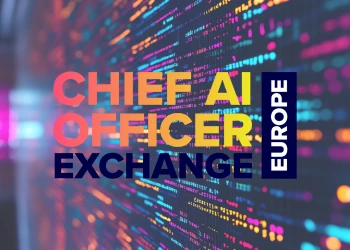How Gucci is Using AI and Data: Part 1
The luxury-fashion brand’s embracing of a tech-savvy younger audience has catapulted the company ahead of its rivals.
Add bookmark
Italian brand Gucci was founded by leather craftsman Guccio Gucci in 1921 in Florence. Up until then, Guccio was renowned for his high-quality horseback riding accessories. He started designing lifestyle products after he got inspired by the wealthy upper-class guests whilst working at the Savoy Hotel in London. Up until today Gucci designs are still strongly inspired by Guccio’s equestrian background and Italian craftmanship.
But how times have changed, and one hundred years on, the luxury fashion company has come a long way from its equestrian roots. Today, Gucci is now using artificial intelligence (AI), data and analytics to stay ahead of the competition. Gucci is using AI to help it understand consumer trends and preferences, as well as identify new product opportunities.
Led by creative director Alessandro Michele, the reinvention of Gucci is a success story like no other. After shirking streetwear fashion in the ‘90s, the company has leaned heavily into youth culture and is seeing itself rewarded for doing so. So far, this digital transformation has proven to be a roaring success. Speaking to CNBC, Francois-Henri Pinault, CEO and Chairman of parent firm Kering, noted that about 50% of Gucci’s sales now come from millennials - a demographic of 35-year-olds and younger which many luxury brands are struggling to capture.
So just how did it accomplish such a feat? Gucci’s success is in large part due to its revamped digital strategy, but more particularly, it is down to the brand’s ability to utilize its customers data to reach a level of personalization that is vital for consumers in the luxury space.
Beginning with a 25,000-square-foot call center outside of Florence staffed by 150 highly-trained service professionals, Gucci is trying to give shoppers “a direct connection to the Gucci community that is seamless, always accessible, personalized experience,” according Marco Bizzarri, Gucci’s chairman and chief executive officer. By listening to what its customers need and responding in kind the brand aims to make sure it always stays one step ahead of any trends. As such, plans are to expand the call centers worldwide to include 500 assistants in New York, Tokyo, Seoul, Shanghai and Singapore by 2020.
Shoppers can interact with call-center assistants by phone, email or live chat and those assistants are encouraged to develop personal relationships with shoppers - just as a personal store assistant would. Gucci is placing a lot of emphasis on the call-center initiative, called Gucci 9, to drive more traffic to stores and more engagement with the brand that will ultimately grow sales.
Bizzarri said that through the call centers the company will “explore the best ways to optimize the remote client experience,” which is critical in the rapidly shifting preferences customers have for interacting with luxury brands.
Data
This level of personalisation is leveraged even more so through technology. And one of the key enablers of their success has been the luxury brand’s investments in technology across the board, as seen in their ArtLab: a futuristic factory where artistic experimentation is blended with 21st-century production processes.
Staffed by a workforce of 800 people, the ArtLab is the centre of product development and lab testing with in-house prototyping and sampling activity for leather goods, new materials, metal hardware and packaging. As a result, the brand can transform ideas and concepts into products at a higher speed than many of their competitors, meeting the Gen-Z demand for quick and unique product drops while enabling creatives to implement their ideas much faster than ever before.
It is not only in terms of new materials that the fashion house is exploring new things. Bizzarri has also enlisted a “shadow committee” comprised of Gen-Z and Millennial members from around the world to meet with technology experts and discover new ideas and approaches. “These [young] people often know much more about certain things than you do,” says Bizzarri on the importance of involving younger consumers in the development process.
Today, the most successful enterprises involve advanced data querying technologies (including AI and machine learning) that offer rapid pattern recognition and the generation of timely and relevant counteractions. By making the target group part of the decision-making body, a brand ensures that the direction they take will resonate with those consumers. Listening to young customers by implementing up-to-date technical infrastructures and integrating them into decision-making processes takes guessing out of the equation and ensures a brand is driven by data which is accurate and relevant to their goals.
Artificial Intelligence
Kering, the international luxury which owns luxury, announced in 2019 that Gucci would be the first luxury brand to utilize AI in order to reduce waste by using it to inform systems about where and where not to sell products. The technology will also be used on the sales floor, providing sales assistants with mobile applications to help increase sales by providing real-time information on available colours and sizes, as well as full access to client’s past purchases, and ultimately collect data points. With every data point having the potential to unlock consumer trends on both a personal, regional, and national level, the value of collecting consumer data is evident.
Behind the scenes, the company is employing robots in its operations to reduce production times and make the manufacturing process more efficient. These robots are also being used to gather data that can be used to develop new products and improve operations. By using AI, data analytics and other digital tools, Gucci has been able to increase the efficiency of its business operations and improve the overall customer experience.
Gucci’s data strategy is always changing, stay tuned for part 2 where we look even deeper into how the brand is leveraging AI today.






















